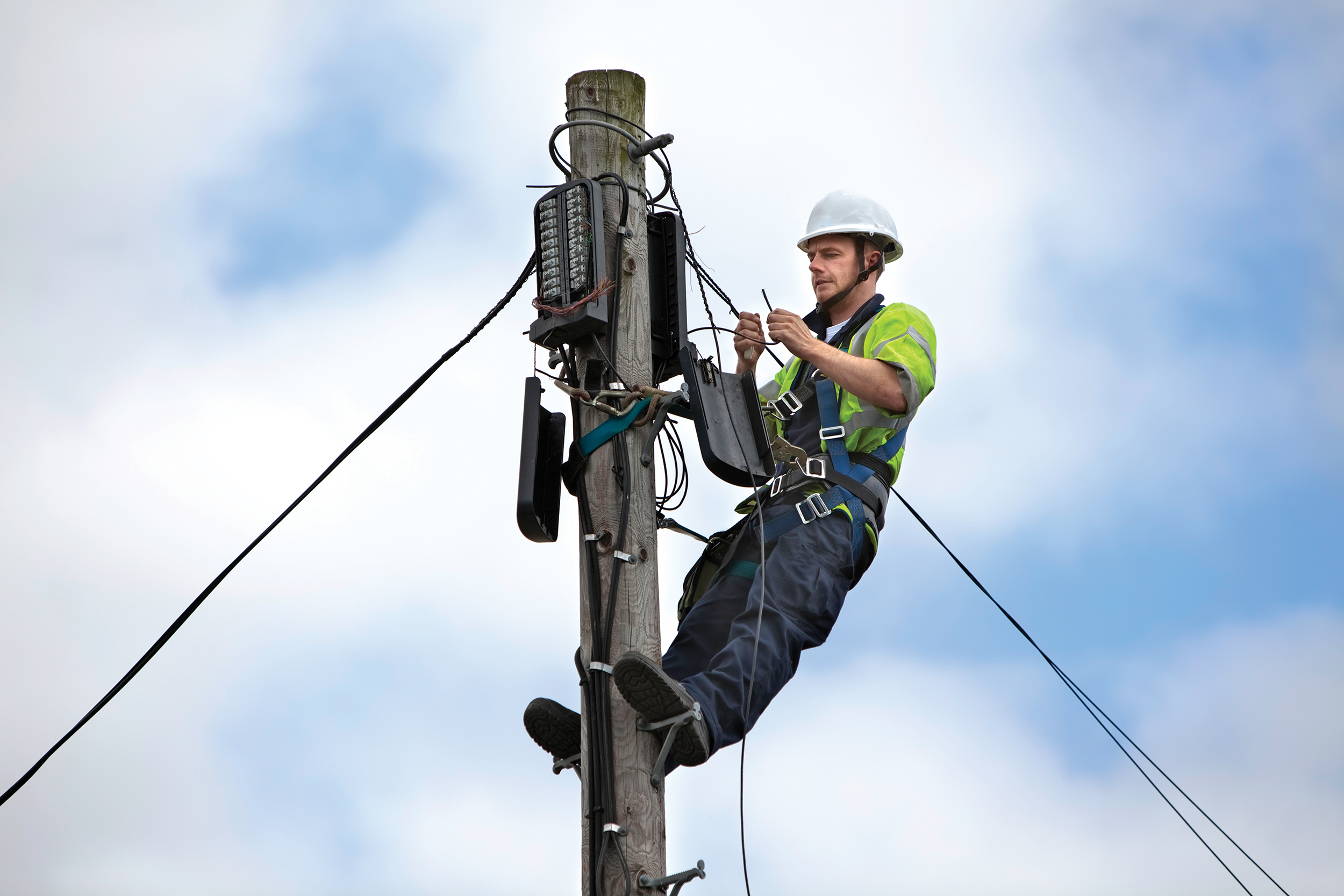FCC Seeks Input on Utility Pole Attachment Issues
Cable broadband operators praise FCC initiative, saying pole owners need more minding

The smarter way to stay on top of the multichannel video marketplace. Sign up below.
You are now subscribed
Your newsletter sign-up was successful
The Federal Communications Commission has launched a proceeding to come up with clear standards for how utilities, telecoms, cable operators and others must share the costs of utility pole replacements. Cable operators argue that pole owners are offloading replacement costs onto pole attachers.
It is the latest among several moves — including a notice of proposed rulemaking —the FCC has made to try and speed the rollout of advanced communications and close the digital divide.
The notice solicited comment on: 1) how to determine whether and how utility pole owners benefit from certain pole replacements not necessitated by new attachment requests; 2) how to best “align” incentives between communications attachers and utilities; 3) the impact of requiring utilities to pay a portion of replacement costs; 4) how to avoid disputes or help expedite their resolution; and 5) the scope of refunds the FCC should mandate for unreasonable or unjust attachment rates.
“Expediting access to utility poles is a critical element of extending broadband to unserved communities and closing the digital divide,” said NCTA–The Internet & Television Association. “As our industry works diligently to build gigabit networks in communities that have yet to be connected, we join with a wide range of parties including broadband providers, school and libraries and public interest groups in applauding the FCC for initiating this proceeding. If we are to accomplish universal connectivity in America in the coming years, further action to help providers obtain timely and reasonable access to utility poles is critical.”
NCTA has told the FCC that members trying to help close the rural digital divide “are being met by demands to pay the full cost of replacing a substantial number of poles. In many cases it appears that pole owners are using the entry of a broadband provider to offload the costs of modernizing their own networks,” NCTA said. “When this practice reached a point that it was starting to interfere with cable operators’ deployment plans, we raised it with the FCC and we appreciate that they are now going to consider the need for new rules.”
In a separate statement, Charter Communications, which has been arguing that discriminatory access to utility poles threatens the ability of broadband providers to close the digital divide, applauded what it said were the FCC's continued steps forward to speed deployment via “timely, fair and cost-effective access to utility poles.”
“Pole-attachment regulation significantly impacts how quickly a provider is able to connect families and small businesses to high-speed internet service, especially in unserved, rural areas that require access to multiple poles to connect each home,” Charter said. ”We greatly appreciate chairwoman [Jessica] Rosenworcel’s leadership in launching this proceeding, which is a critical first step in ensuring more people get online faster and achieving 100% connectivity across the U.S.”
“USTelecom’s members have been providing voice and broadband service to Americans in rural areas for over a hundred years,“ said Jonathan Spalter, president of the trade group representing independent phone companies. “Access to poles has been, and will continue to be, a key ingredient and cost of serving rural America and no broadband provider should be required to subsidize the pole attachment costs of a competitor. We also strongly support the calls to ensure that all pole owners, including those owned by municipalities and electric cooperatives, are subject to the same rules of the Commission and states as the rest of the broadband provider community.”
“We applaud the FCC for initiating the pole replacement proceeding today," said Matthew Polka, president and CEO of ACA Connects, which represents smaller, independent cable operators. “By taking action here, the FCC will help close the broadband deployment gap and maximize use of government funding. Moreover, it will ensure both private pole owners and attachers are treated fairly by making all beneficiaries of pole replacements pay their fair share.”
“Altice USA applauds the FCC’s launch of a rulemaking proceeding to address pole replacement issues, which hamper deployment of broadband to unserved and underserved areas across the country,” said the broadband provider. “Delays, costs and disputes related to pole attachments and replacements have been consistent barriers to our efforts to connect new households and businesses to high-speed Optimum and Suddenlink Internet service. Reforming these rules at the FCC is an important step towards bridging the digital divide, and we look forward to FCC action on these issues.” ■
The smarter way to stay on top of the multichannel video marketplace. Sign up below.
Contributing editor John Eggerton has been an editor and/or writer on media regulation, legislation and policy for over four decades, including covering the FCC, FTC, Congress, the major media trade associations, and the federal courts. In addition to Multichannel News and Broadcasting + Cable, his work has appeared in Radio World, TV Technology, TV Fax, This Week in Consumer Electronics, Variety and the Encyclopedia Britannica.

